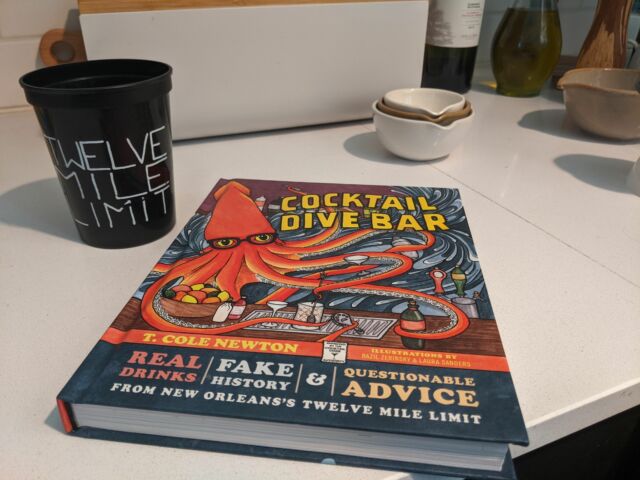
If the heatwaves haven’t given it away, summer 2021 is in full swing across the US. COVID-19 robbed us of many, many things in 2020, including so much of what’s great about this time of year—travel, time in parks or at a seashore, afternoons by a pool or lake. But as vaccination rates continue to climb, there’s hope that 2021 can have a more genuine summer experience.
Venturing back into the world also means more opportunities to do so with a paperback or eBook in tow. So the Ars staff is back to provide another glimpse into what we’ve been reading and what’s on our TBR lists as of late. From graphic novels to Hugo Award-winning authors to deep dives into topics you’ve probably read about here, there’s no shortage of great 2021 options regardless of your typical reading habits. Plus, any time you can shout out a classic piece of literature by saying it’s full of “throat-jabs of prose,” you might be obligated to put together a list of book recommendations.
Note: Ars Technica may earn compensation for sales from links on this post through affiliate programs.

Empire of Pain
Because it’s impossible to ever get too angry about how the megarich abuse their power in this country, I plan on checking out Empire of Pain: The Secret History of the Sackler Dynasty, the recent nonfiction work from New Yorker staff writer Patrick Radden Keefe. As the title suggests, it follows the rise of the Sackler family, whose pharmaceutical company, Purdue Pharma, introduced and aggressively promoted the painkiller OxyContin. That went a long way toward sparking the opioid epidemic that has claimed some half-million overdose deaths and fostered countless more addicts. Purdue made billions off the epidemic, while the Sacklers increased their standing as cultural benefactors, their name adorning museums, university buildings, and the like.
The general frame of the opioid crisis is well-reported at this point, but reviews have lauded Empire of Pain for digging deeper into the history and family dynamics of the Sacklers themselves: how their legacy for melding medicine and marketing dates back generations, how far they’ve gone to avoid accountability, and how they use that wealth to indulge themselves. Naturally, people like this do not get to behave the way they do without a wider structure that enables them. So, Empire will be a hate-read. But if we can’t have their money, they might as well have our scorn.
—Jeff Dunn, Senior Commerce Editor
Liftoff
Really, everything you need to know about Ars Senior Space Editor Eric Berger’s Liftoff can be conveyed in this excellent six-word review:
Just read it. Book is accurate. https://t.co/3bI9Vw8iP1
— Elon Musk (@elonmusk) April 9, 2021
If you prefer the longer version, here goes: if following Berger’s work on Ars hasn’t given it away, he’s regarded as the best space reporter in the business for a reason. He travels everywhere from Tokyo to French Guiana to better understand today’s global space industry, and he has a deep affection for and interest in the context and lessons of human spaceflight past. So when a journalist with deep subject familiarity and an endless industry Rolodex decides to tackle the origin story of the most important company of today, you get to “just read it” territory pretty quick. Berger’s writing on SpaceX has been must read ever since he arrived at Ars, and Liftoff gives him plenty of space to fill in the blanks surrounding the company’s make-or-break early years. Seeing how far and how fast SpaceX has come will give anyone a new appreciation for the next seemingly ho-hum successful Falcon 9 launch. Plus, you may never come across a more riveting and pivotal use of a hairdryer in human history.
—Nathan Mattise, Features Editor

Happy hour(s of reading)
The pandemic ruined so much we took for granted, and cozying up after a long workday at the neighborhood pub is something I didn’t realize I’d miss. Luckily, Cocktail Dive Bar arrived this spring to provide the best at-home facsimile.
Have you ever read a cocktail book cover-to-cover before? Me either. But I also never had a book born out of the best modern neighborhood dive bar in New Orleans (therefore the world?), Twelve Mile Limit. Owner T. Cole Newton’s first book does have plenty of recipes from his unassuming cathedral of “fancy cocktails, but we’re not fancy about it,” and it’s probably worth the cover price to have guidance on 12ML’s signature Baudin alone. But Newton is a gifted orator and storyteller—his former bar podcast on the city and industry was great. Cocktail Dive Bar breaks up recipes with loads of information for anyone interested in New Orleans or the larger beverage industry.
For instance: Newton includes classic drinks among his recipes, but he assumes anyone buying his book already knows the gist of how to make them. So his recipes reflect how he prefers to make them, with slightly different ratios or ingredients. Meanwhile, the essay that accompanies each recipe outlines an over-the-top, tall-tale backstory told with a straight face. (Did you know the Aviation, for instance, was “created” by the Wright brothers mid-Kitty Hawk flight but only surfaced after tension between the brothers led to violence that resulted in one fleeing for the South Pacific before meeting a rhino tusk in the chest? True story.)
In contrast, original drinks by Newton or the 12ML team come with backstories related to the modern bar industry, from how recipes might spread across the country without explicit consent to naming conventions to tricks for coming up with your own creations (inversions are great, who knew?). And each section of cocktail recipes is punctuated by a straight-up essay on a larger industry challenge and how 12ML approaches it, like fighting sexual harassment and assault or whether you can create an antiracist bar space these days.
The book is knowledgeable but not pretentious, entertaining but not distracting—Newton’s writing is almost as good as the drinks. Almost.
—Nathan Mattise, Features Editor
https://arstechnica.com/?p=1776798

